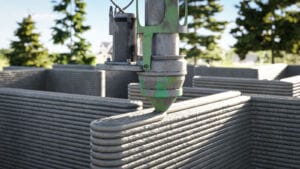When you buy a house, you’re buying many things. There is the house itself, of course. And it comes with land, whether you like to think about that or not.
After that, you’re buying many, many things you likely don’t even consciously think about, such as taxes and utility costs. In addition, you’re buying the schools, the police precinct, and even the neighbor down the street.
But the biggest purchase of all, of course, is the home itself.
And when you’re buying a home, the first question that often comes up is whether to buy a house in a flood zone.
Here are some of the factors to take into consideration when buying a house in a flood zone.
1. Know the Date It Was Built
It is important to take into consideration the date that a house was built if you are looking to buy a property in a flood zone. It is possible that the house may have been built before 1976. As such, it was constructed with outdated building standards and flood-resistant materials.
In this case, the house may be more vulnerable to flooding. It may also require costly repairs or updates when floods occur. Additionally, it is also important to research whether the house has been updated to modern standards.
Confirm the things such as building on stilts or elevating the home to minimize the potential for flood damage. Doing your research beforehand will help you better estimate the repair costs or upgrade expenses should the house suffer any flood-related damages.
2. Have a Quote for Flood Insurance
Floods can cause billions of dollars in damage. If you are buying a house in a flood zone, having a quote for flood insurance is a must. Knowing exactly how much it will cost to cover your home before purchasing it will help you plan your budget accordingly.
Additionally, when looking for flood insurance, you should research different policies. This is to make sure you receive the coverage that is the most suitable for your property.
Before buying a house in a flood zone, you must also consider the likelihood of flooding in the area and any local ordinances. Finally, check with your local government, as they may provide greater protection to homeowners in flood-prone areas.
Having the right protection in place will safeguard your property and help protect your hard-earned investment for years to come. You can get your insurance quote by visiting this website at betterflood.com to help you protect your home.
3. Assess Your Flood Risk
When considering buying a house in a flood zone, it is important to assess your flood risk. First, you should check the FEMA Flood Risk Maps for an understanding of flood risk in your area.
You can also access floodplain and watershed maps to understand potential flooding hazards. Knowing where the potential flooding risks are located can help you decide whether or not a particular property may be too risky for you.
Second, you should evaluate the location of the house. Make sure you research the drainage system in the area and look for any existing flood prevention structures, as well as any barriers that may help to contain flooding in the area.
Third, take into account the volume of monthly and yearly rainfall in the area. Make sure to familiarize yourself with the local floodplain ordinances. Finally, don’t forget to consider flood insurance costs in your calculations.
Understanding your risk of flooding can help you make an informed decision when buying a house in a flood zone.
4. Find Your Zone
Before buying a house in a flood zone, it is important to identify your zone and understand the potential risks associated with a floodplain. The first step to finding your zone is to visit the official website of the Federal Emergency Management Agency (FEMA).
This website provides information on flood risks and other flooding-related resources. It also has information on specific flood zones in different parts of the country.
You also should study the terrain and look for evidence that the area is prone to flooding. Checking drainage systems and other features can help determine the risk.
In addition, inquire with local authorities about the flood history of the area. Be sure to factor in any possible future building projects that could increase or decrease the potential for flooding in your area.
5. Check How Often the Flood Occurs
When considering whether to buy a house located in a flood zone it’s important to understand how often the area floods. One way to check this is to contact the local floodplain management office.
They can provide information about past floods. It may also be helpful to consult with your insurance broker about potential risks associated with the home and whether appropriate policies are available for that location.
6. Mitigation Might Be a Choice
Mitigation might be a choice for protecting the house. Flood mitigation methods include:
- elevating the structure
- installing flood walls
- implementing floodproofing techniques
They can confer protection on a property, lessen the severity of flooding, and minimize the risk of property damage. It is essential to contact an experienced flood specialist prior to undertaking any mitigation measures.
It is also wise to consider seeking assistance from the FEMA Flood Risk Management Program and your local floodplain manager before investing in a flood-prone home.
7. You’ll Need an Elevation Certificate
Before buying a house in an area that is often prone to flooding, it is essential to obtain an elevation certificate as part of the due diligence. This document serves as a critical piece of evidence that will inform you of the elevation of the house on the property.
It also serves as an important tool for assessing potential risks of flooding at the property. Taking steps to obtain an elevation certificate is a must when considering a house in a flood zone.
It will provide crucial information about the property’s susceptibility to flood damage and help you make an informed decision on whether or not it’s the right house for you.
Best Tips on Buying a House in a Flood Zone
Living in a Flood Zone is not ideal in most cases due to potential health and economic risks. Before buying a house in a flood zone, there are various factors to consider, such as insurance costs, flood prevention installation, and elevation.
Consult with a trusted professional, such as a local real estate agent or flood-preparedness official, to learn more and find out what steps you can take to ensure that you are making a safe home purchase.
Did you find this article helpful? You can check out our website for more awesome content like this.




